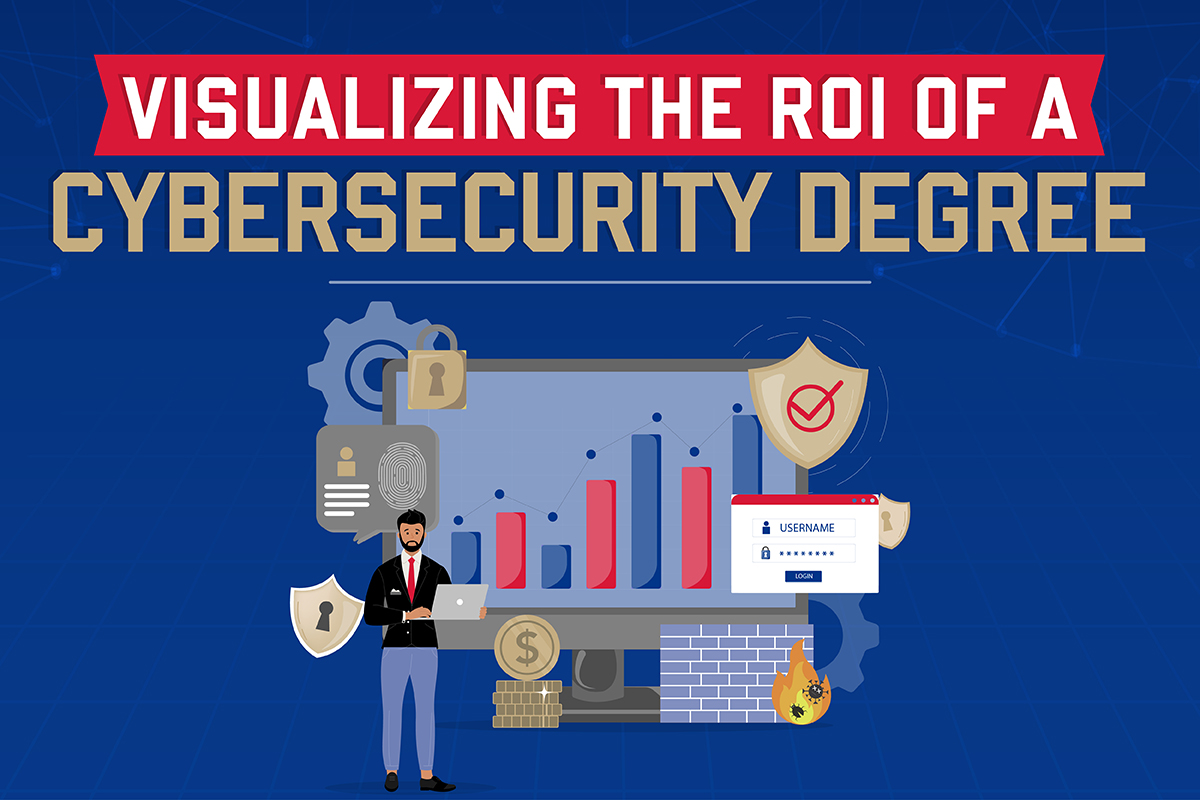Malware Analyst Career Overview
Written by:
University of Tulsa
• Sep 26, 2024

The role of malware analyst is a relatively new job that requires specific skills to respond to bad actors and malicious activity across virtual networks. It’s growing quickly as a career: Malicious activity is no longer a vague threat but a standard reality for any organization or individual maintaining data and information virtually.
Cyber attacks happen all the time and are on the rise. The number of ransomware attacks alone rose by 74% in the United States in just a single year from 2022 to 2023, according to the Cyber Threat Intelligence Integration Center (CTIIC).
Malware analysts are cybersecurity professionals who protect against vulnerabilities in network systems and detect intrusions by different types of malware: ransomware, viruses, worms, spyware, and more. Aspiring malware analysts should consider the right training and education, such as a master’s degree in cybersecurity, to enter the field.
Malware Analyst Day-to-Day Duties
A malware analyst examines code to discern what belongs there and what doesn’t. Malware is software that infiltrates network systems and hides within them, making it particularly challenging to find and eliminate. However, no single malware analyst could possibly review the amount of code in any given network — it would be akin to reading thousands of encyclopedias to discover typos strewn across a few pages — so a big part of the role is using automated tools and artificial intelligence (AI) to get close to the infected area more quickly.
Malware analysts typically spend their time in the following ways:
- Collaborating with network penetration testers, ethical hackers, and internal auditors to discover and patch vulnerabilities in the system that new malware could exploit
- Testing malware in safe environments, such as sandboxes or isolated networks, to observe how it behaves and how to combat it
- Engaging with the cybersecurity community to learn about new malware threats as they’re used or discovered
- Deploying automated scanning tools to regularly assess the system for malware intrusions
- Zooming in on potentially infected areas of code to manually discern benign code from embedded malware
Typical Work Environments for Malware Analysts
Malware analysts can work in any organization with a cybersecurity or information security team, often collaborating closely with information technology (IT) teams (although there are differences between IT and cybersecurity). Any company that has sensitive data to protect and is concerned with what would happen to its revenue, client or beneficiaries, and reputation should a malware attack compromise its network security is likely to be interested in hiring malware analysts. Key industries include the following:
- Technology: Companies whose missions and offerings are completely digital or software-based must protect the security of their information.
- Government: Governing bodies from local municipalities to federal governments have been targets of cyber attacks because the information that their systems hold is often confidential and sensitive.
- Health Care: Organizations that store patient medical information are often targets for cyber attacks and must proactively defend against them.
- Finance: Companies that store clients’ financial information and monetary accounts need the highest level of threat detection and protection.
Salary and Job Outlook
Given the reasons previously discussed and because malware analysts are highly skilled yet can begin their careers at the entry level and gain experience on the job, the salary and outlook for the role are promising. The median annual salary for a malware analyst was approximately $93,000 as of June 2024, according to Payscale, with the upper quartile earning more than $110,000. Additionally, the U.S. Bureau of Labor Statistics (BLS) projects a 32% growth rate between 2022 and 2032 for information security analysts, a role closely related to malware analyst that refers to professionals who protect computer networks.
How to Become a Malware Analyst
Entering the industry as a malware analyst opens up growth pathways within the field to high-level cybersecurity careers, technical expertise, and impact. The steps to becoming a malware analyst involve becoming equipped with technical knowledge, fundamental skills, and a broad understanding of the field as a whole.
Earn a Degree in Cybersecurity or a Related Field
While some companies hire workers without degrees, a bachelor’s degree can help aspiring cybersecurity professionals be more competitive in the market. In particular, those with an advanced degree, such as a master’s degree in cybersecurity, are primed to advance within an organization. Common coursework in degree programs includes the following:
- Foundational concepts in system security
- Human factors in defending against malicious activity
- Defensive cybersecurity techniques, including cybersecurity programming
- Network design and cryptography
Gain Required Experience
As a part of coursework and early career opportunities, malware analysts hone skills specific to proactively preventing and defending against malware attacks. Those include the following:
- Running Static Analysis: Examining and scanning code that’s not running to detect abnormalities that could indicate danger
- Conducting Dynamic Analysis: Running code in an isolated environment to understand how it operates and learn how to defend against it
- Operating Automated Tools for Malware Analysis: Confidently using AI as a partner in malware detection, as the amount of code to manage becomes untenable very quickly
- Reverse Engineering Code: As areas of potential abnormality are identified, manually dissembling the code in those spots to find the bug that may be hiding
Pass Relevant Certification Exams
Most cybersecurity professionals earn specialized certifications to begin and sustain their careers, as the field evolves so quickly in response to new threats and technological possibilities. For malware analysts, key certifications tend to include the following:
- CompTIA Security+
- Certified Information Systems Security Professional (CISSP)
- Global Information Assurance Certification (GIAC)
Become a Malware Analyst With a Cybersecurity Degree
Malware analysts are increasingly in demand as cybersecurity teams take steps to ensure that they hire specialists who can analyze malware and reduce risk. This career path offers deeper opportunities in technical expertise as well as pathways to leadership and high-level strategy. If you’re interested in kick-starting a career in technology or leveling up your current skill set, The University of Tulsa’s online Master of Science (M.S.) in Cyber Security can help you get there. Essential coursework includes concepts in system security, such as malware, human factors of cybersecurity, and defensive methodologies and their uses today.
Explore more about how TU’s online M.S. in Cyber Security can launch your career as a malware analyst.
Recommended Readings
Famous Ransomware Attacks in History
What’s Defensive Cybersecurity?
Skills Needed for Cybersecurity
Sources:
Check Point Software Technologies, Malware Analysis
Fortinet, What Is Malware Analysis?
Indeed, 14 High-Paying Jobs in Information Security (With Salary Info)
Payscale, Average Malware Analyst Salary
Security Intelligence, “What Are the Duties of a Malware Analyst?"


